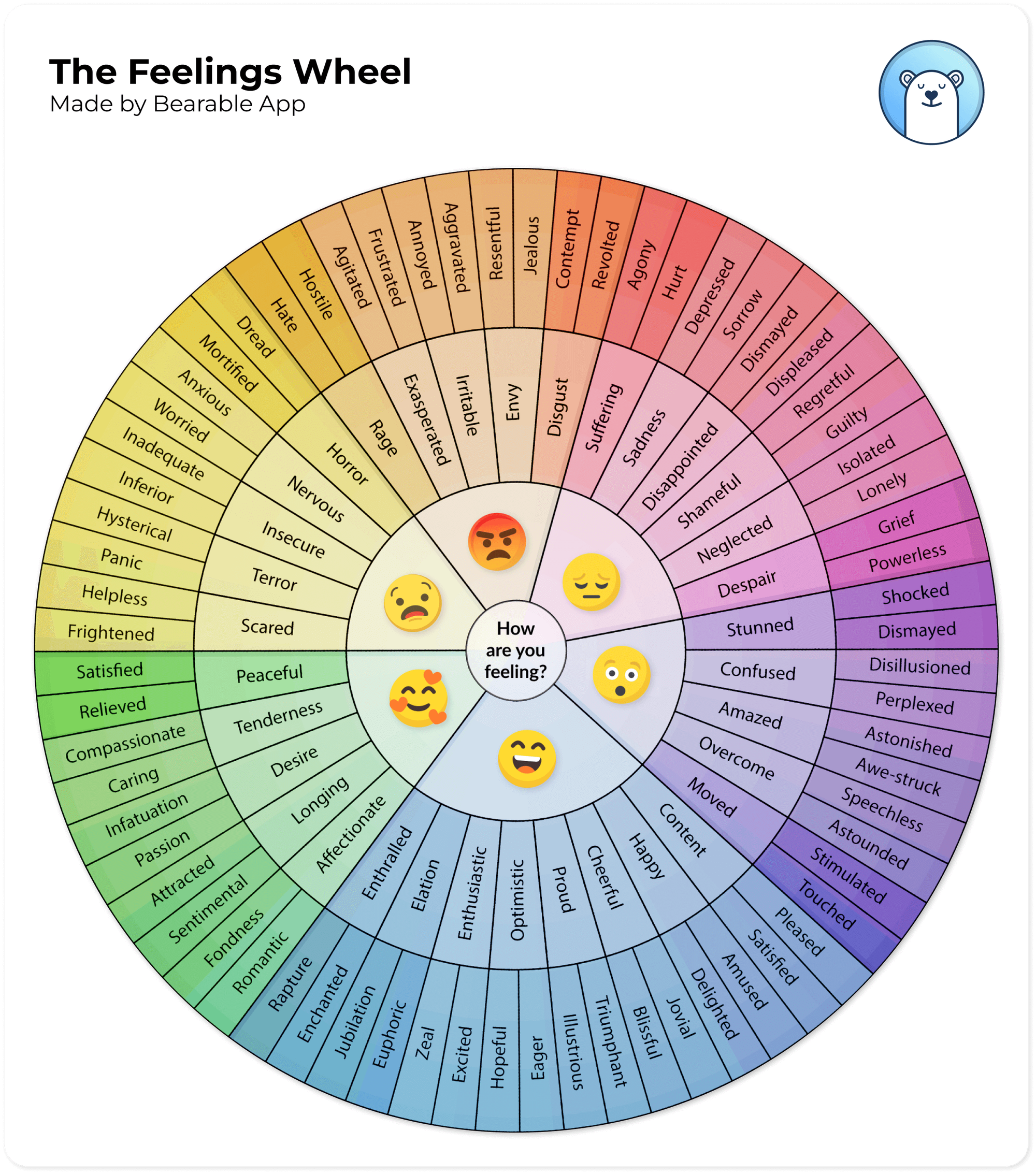Emotional Awareness / Alexithymia

Alexithymia also sometimes referred to as 'emotional blindness' is often linked to autism.
I'm going to hold up my hands and say that I have no idea if there's any proof that alexithymia and autism are linked due to genetic markers or if there are studies that have examined if alexithymia is part of autism the same way stimming is.
What I do know is that when I talk about emotional awareness with autistic adults there's always been, 100% of the time, a link between a childhood where emotions weren't talked about or weren't allowed to be expressed. Not necessarily because people have come from traumatising homes but often simply due to the generation we belong to. Anymore born before 2000 (approximately) grew up in an era where emotional awareness wasn't the norm. The parents of people born before 2000 often didn't have an emotional vocabulary themselves. The internet wasn't widespread prior to 2000 and it certainly wasn't part of the school curriculum to know or understand one's emotions or feelings. And so, when I take people's histories, there's always a story of growing up, just not talking about feelings other than perhaps 'mad, sad or glad'.
So, what I can't say with any kind of certainty or authority is whether someone can be blind to their feelings and never improve that aspect of themselves.
What I can say is that I've worked with a lot of autistic people (me, being one of them) who learned to develop their emotional awareness through deliberate practice, much like improving your fitness or ability to meditate through dedicated, active practice.
This is the sort of topic that can't be covered in a blog post or through a simple recourse but one way to start improving your emotional awareness and vocabulary is to use the Feelings Wheel or Emotion Wheel.
It's a list (or fan) of emotions and the idea is that you take deliberate pauses throughout the day or when in conversation with, for example, your therapist and try to find a feeling that resonates, like anxious. But then dig deeper, using the fan of emotions and try to identify whether that anxiety is due to feeling inferior or overwhelmed or maybe there's actually some anger there and is that anger about feeling humiliated or dismissed? The more precis we can get with our language, the easier it becomes to then address the need underneath that feeling. If your anxiety is due to feeling overwhelmed, you can perhaps look at ways to reduce that overwhelm, however, if the anxiety is actually related to anger due to feeling dismissed, you probably need something different to help yourself.
Due to copy right issues I can't attached a feeling wheel here but type that or emotions wheel into Google and you'll have a rich library of pictures to download.